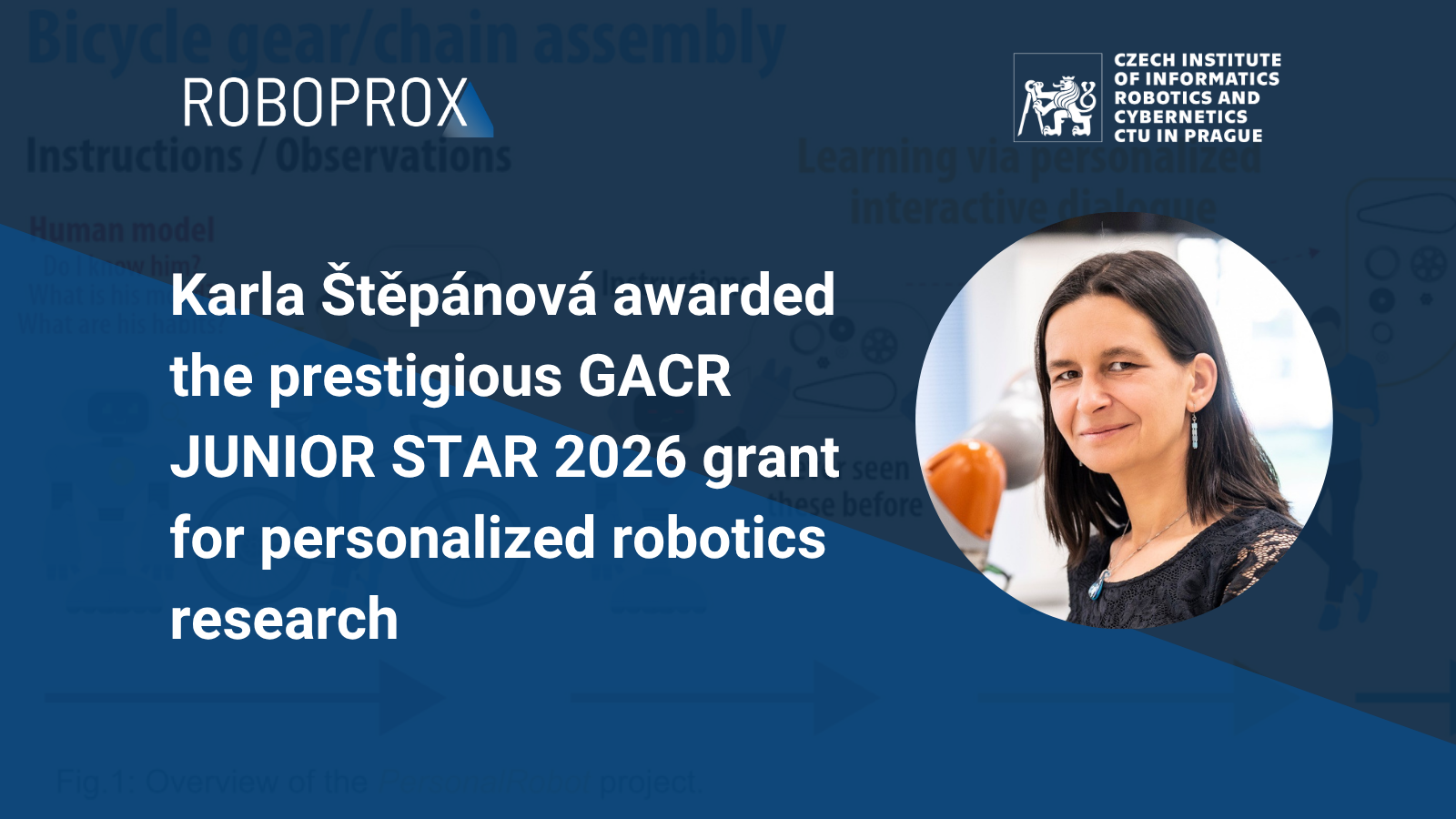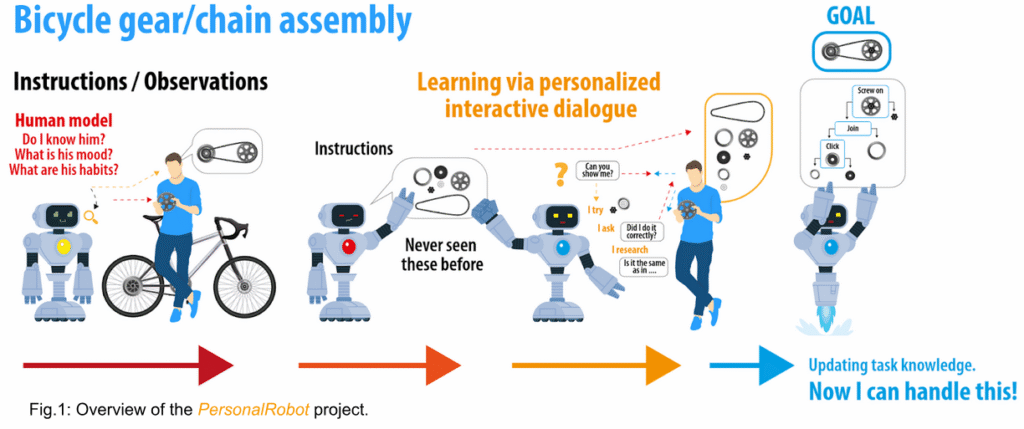Dr. Karla Štěpánová, Head of the Robotic Perception Group at the Czech Institute of Informatics, Robotics and Cybernetics of the Czech Technical University in Prague (CIIRC CTU), Member of ROBOPROX RA7 Human-machine collaboration and ROBOPROX Women Forum, has been awarded a prestigious JUNIOR STAR grant by the Czech Science Foundation (GACR). Her five-year project, PersonalRobot: Customizing Robots via Multimodal Interactive Human-Robot Dialogues, addresses one of the major challenges in modern robotics – deploying robots for various tasks, such as small-scale manufacturing, and adapting them to people’s individual needs. Dr. Štěpánová was successful in the current grant call along with 17 other young scientists, and she is the only laureate from CTU this year. Her success confirms not only her outstanding scientific ideas and results to date, but also the groundbreaking significance of her further research for Czech science.

Deploying robots in everyday life, whether in households, healthcare, or small-scale manufacturing, remains a significant challenge. Current robotic systems often struggle in dynamic, unpredictable, and person-specific environments. The PersonalRobot project aims to overcome these limitations by developing robots that can learn like novice human workers through observations, explanations, and interactive dialogue. By enhancing multimodal large language models with flexible memory structures, robots will be able to recall user-, task-, and environment-specific knowledge and continuously refine their understanding, allowing them to adapt dynamically to changing circumstances.
Karla Štěpánová stresses that the success of the project is a shared effort. “Getting the project isn’t just my own achievement. I would like to thank all my collaborators, CIIRC CTU and everyone who helped me prepare the proposal and provided feedback, especially Josef Šivic, prof. Zeman, Stephanie Krueger, Matěj Hoffmann, Radoslav Škoviera, and others. I am very happy, but I also feel a sense of obligation to make the best possible use of this funding to contribute to Czech science,” she said.

The long-term goal is to move collaborative robotics beyond today’s universal systems toward personal robots that understand their users and new tasks, adjust to their routines and communication styles, and collaborate naturally over time. The project will develop novel algorithms and architectures and establish benchmarks and datasets to support further research in human-centric adaptive robotics, paving the way for intelligent robots in healthcare, industry, and households.
The PersonalRobot project stands at the intersection of artificial intelligence, machine learning, and robotics, but its impact extends far beyond these fields. Personalized robots could assist people with disabilities or the elderly, enhance efficiency in small and medium-sized enterprises, and provide new insights into how humans learn, communicate, and collaborate with technology. By creating robots that learn and adapt like humans, the project contributes not only to smarter, more adaptable robotics, but also to the advancement of human-centered AI and collaborative technology.The JUNIOR STAR program supports excellent early-career researchers within eight years of earning their Ph.D. who have demonstrated outstanding results and international experience. Each grant provides up to 25 million CZK over five years, allowing young scientists to establish independent research groups and pursue ambitious directions. In the 2026 call, GA ČR will fund 18 JUNIOR STAR projects with total funding exceeding 425 million CZK.
